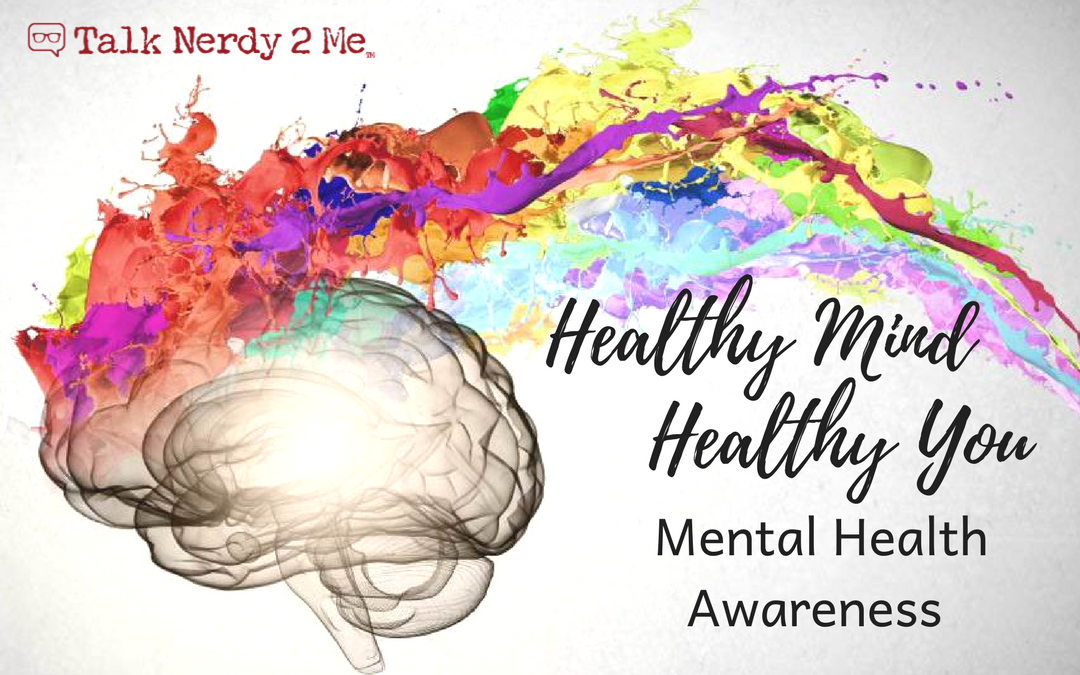Every year the nation celebrates a month for individuals struggling with an inner conflict, and the month of May tells these people that they do not need to face these problems alone. NSCS has partnered with Active Minds to empower college students to openly speak about mental health to educate and encourage help-seeking for others. The history of Mental Health Awareness Month dates back to 1949, where it was established by Mental Health America. Each year has its own theme and this year’s theme is Fitness #4Mind4Body.
What Is Mental Health?
Your overall health involves both your body and mind working together. By understanding how your physical health impacts your mental health, you can move toward a healthier lifestyle. Your mental health impacts your daily life and includes your emotional, psychological and social well-being.
A person’s ability to enjoy life can be seriously hindered by many different mental illnesses. The Harvard Medical School estimates that about 26 percent of Americans aged 18 years or older live with a diagnosable mental health disorder, and almost one-third of college students admitted to feeling so depressed that they had trouble functioning, according to the American College Health Association.
According to our partners at Active Minds, mental health issues in college students such as anxiety, depression and eating disorders, have been associated with a lower GPA and higher probability of dropping out of college. Mental health issues can also lead to suicide, which is the second leading cause of death among college students that claims 1,100 student lives each year. However, compared to older adults, 18 through 24-year-olds show the lowest rate of help-seeking as about half of students with suicidal thoughts never seek counseling or treatment.
Spread The Word
Spreading awareness, education and advocacy can help people struggling with mental illness overcome their inner battles that they rarely speak about. You can join the mission of spreading mental health awareness through teaming up with Active Minds by supporting or starting a chapter at your school. These student-run chapters develop a network to educate peers and connect students to helpful resources while changing the negative stigma surrounding mental health disorders.
Help A Friend
College students are more likely to talk to one another about their issues before they talk to a parent or counselor. A study from the Framework for Campus Mental Health Promotion and Suicide Prevention found that 67 percent of college students tell a friend they are feeling suicidal before telling anyone else. Active Minds has helpful tips for helping a friend in need if you believe that you have a friend that needs your help. If you or a friend needs immediate help call the National Suicide Prevention Lifeline at 1(800)273-8255 or text “BRAVE” to 741-741 to reach the Crisis Text Line.
Take Care Of Yourself
A healthy lifestyle can help prevent the onset and worsening of mental illnesses. So, to maintain a healthy lifestyle, you should eat healthy and incorporate exercise into your daily routine. Studies found that adolescents with the healthiest diets and lifestyles were half as likely to have depression, while those with a diet in junk and processed foods were 80 percent more likely to have depression. After improving their diet, one-third of students with depression experienced improvement in their relief. If you or a friend are having issues with staying healthy, check out this list of healthy food that will help improve your mental health to help kick start your new lifestyle.
Sleep Is Necessary
The National Sleep Foundation recommends adults ages 18 to 64 get seven to nine hours of sleep each night. Poor quality sleep can increase the risk of developing mental health symptoms like paranoia, anxiety and depression. If you are finding it hard to sleep, try these mind soothing apps that should put you fast asleep in no time.
Reduce Your Stress
Another contribution to your mental health is your stress levels. Some stress is normal in life, but too much stress (chronic stress) can physically affect you. Chronic stress can reduce your immune system, cause skin problems, muscular aches, digestive issues, irregular or painful periods, and changes in weight and appetite.
To reduce your stress be sure to only take on tasks that you can handle, find outlets such as meditation or yoga, or talk to a close friend or family member. Furthermore, exercise is very helpful as it increases a variety of chemical substances that help with brain function. Exercise does not have to mean long hours at the gym each week, if that is a component that you are worried about. Research shows that just one hour a week is associated with lower levels in mood and anxiety disorders.
A healthy lifestyle is not easy, but gradually making small changes to benefit your mind and body can build up your success in overcoming or preventing mental health issues. So, whether you are battling mental health or inspired to help spread the word about mental health awareness, use or share these tips to start living a healthier life or to help someone else in need.
Author: Candace Harada, NSCS Marketing Intern

